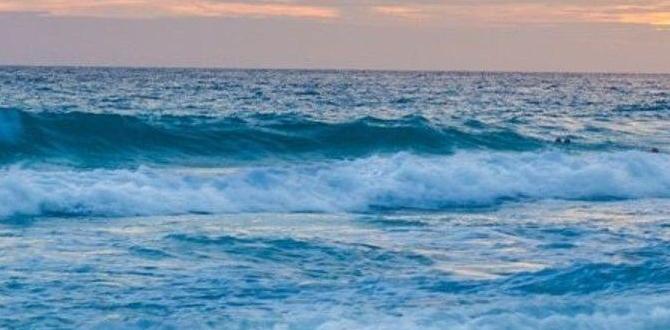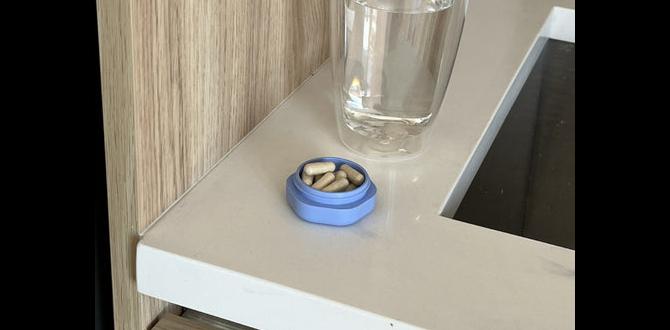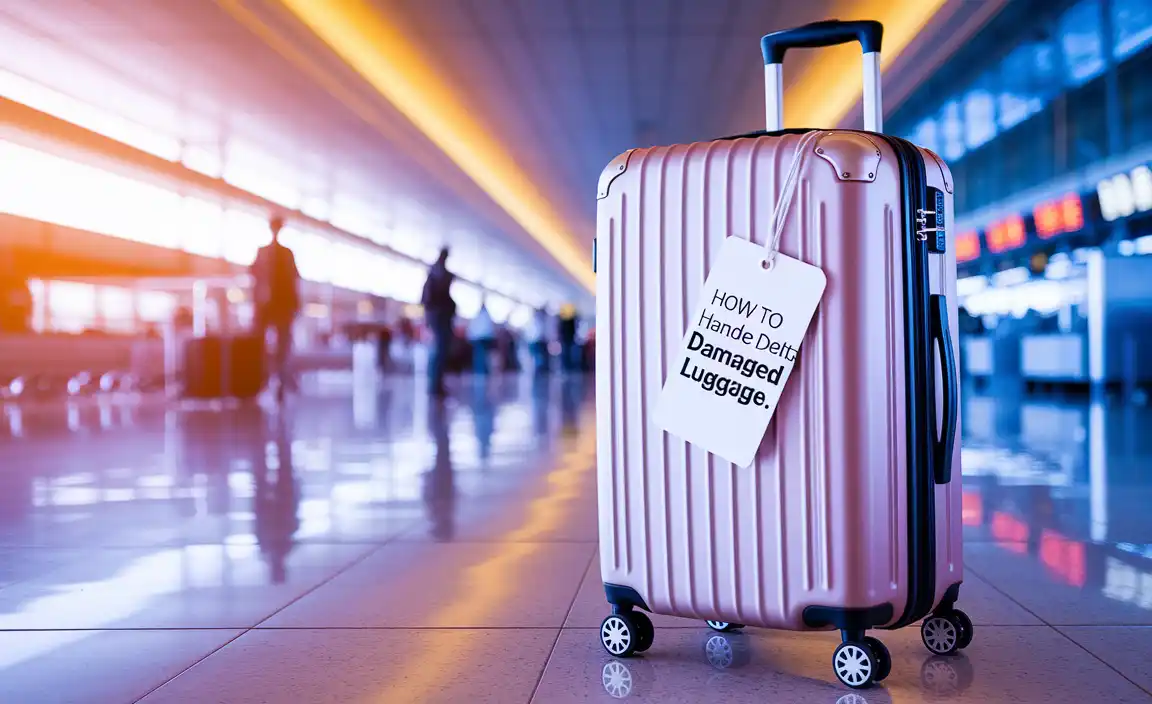Basque Country safety is generally excellent, with low crime rates. However, like any popular tourist destination, it’s wise to be aware of common petty theft and minor scams to ensure a worry-free trip.
Exploring the Basque Country is an absolute joy. With buzzing cities like Bilbao and San Sebastián, stunning coastlines, and delicious food, it’s a traveler’s dream. While it’s known for being a safe region, preparing yourself with a few simple tips can make your journey even smoother. Sometimes, the smallest overlooked details can lead to frustration, but we’re here to help you navigate it all with ease. We’ll cover everything from general safety precautions to spotting and avoiding common tourist traps.
Your Essential Guide to Basque Country Safety
The Basque Country, a beautiful autonomous community in northern Spain, offers an incredible blend of culture, stunning landscapes, and gastronomy. Travelers often flock here for its vibrant cities, picturesque beaches, and the chance to experience unique traditions. When planning your adventure, understanding local safety nuances is key to a relaxed and memorable experience.
Understanding Basque Country’s Safety Reputation
The Basque Country boasts a strong safety record. Violent crime is rare, and petty theft, while present, is not as prevalent as in some other major European tourist hubs. However, no destination is entirely free from opportunistic crime, and being informed is your best defense. Familiarizing yourself with common travel scams can prevent unwelcome surprises and allow you to focus on enjoying the region’s many wonders.
General Safety Tips for a Smooth Journey
These fundamental tips apply to most travel destinations, including the Basque Country, and will help you stay safe and secure:
Be Aware of Your Surroundings: This is the golden rule of travel. While you’re enjoying the sights, take a moment to notice who is around you, especially in crowded areas like markets, train stations, and popular tourist attractions.
Secure Your Valuables: Keep your passport, important documents, and significant amounts of cash in a secure place, like a hotel safe. For daily use, carry only what you need. Consider a money belt or a cross-body bag that zips securely.
Guard Your Belongings on Public Transport: Pickpockets often target buses, trams, and metro systems. Keep your bags on your lap or between your feet, and never leave them unattended.
Don’t Flash Your Wealth: Avoid displaying expensive jewelry, high-end electronics, or large sums of cash. This can make you a less attractive target for thieves.
Stay Connected: Keep your mobile phone charged and consider getting a local SIM card or an international eSIM for easy communication. Share your itinerary with someone back home.
Be Cautious at Night: While major cities are generally safe after dark, it’s always wise to stick to well-lit and populated areas. If you’re unsure, take a taxi or a ride-sharing service.
Trust Your Instincts: If a situation feels uncomfortable or unsafe, remove yourself from it. Your intuition is a powerful tool.
Staying Safe in Urban Centers: Bilbao and San Sebastián
Bilbao, with its iconic Guggenheim Museum, and San Sebastián, famous for its La Concha beach and pintxos, are dynamic cities. They attract many visitors, making them prime spots for petty crimes.
Bilbao Safety Considerations
Bilbao is a wonderfully walkable city and generally safe. However, as with any urban center, certain areas and situations warrant a bit more caution:
Crowded Areas: Places like the Ensanche district, the Casco Viejo (Old Town) during busy markets or festivals, and around the Guggenheim Museum can be targets for pickpockets.
Public Transportation: When using trams or buses, be mindful of your bags and pockets.
Nightlife Areas: While lively and fun, areas with many bars and clubs can sometimes attract opportunistic thieves. Stick to main streets and well-lit areas.
San Sebastián Safety Considerations
San Sebastián is renowned for its beauty and charm. Its pedestrian-friendly streets make it a delight to explore.
La Concha Beach and Promenade: This is a magnet for tourists, making it a common spot for bag-snatching or pickpocketing when people are distracted by the scenery or swimming.
Old Town (Parte Vieja): Especially during pintxos bar hopping or market days, keep a close eye on your belongings.
Bus and Train Stations: Always be vigilant when arriving or departing, as these are common locations for petty theft.
Navigating Rural and Coastal Areas
The Basque Country’s countryside and coastlines are stunning and typically very safe. However, here are some things to keep in mind:
Hiking and Outdoor Activities: If you plan on hiking in regions like the Urdaibai Biosphere Reserve or exploring coastal trails, inform someone of your route and expected return time. Ensure you have a charged phone and adequate water. Weather can change quickly in northern Spain, so pack accordingly. For official information on park safety and conditions, consult resources from the Basque Government’s Environment Department.
Remote Areas: While remote villages are usually tranquil, mobile phone signal can be spotty. Be prepared and carry a basic first-aid kit.
Parking: If you rent a car, be aware of your surroundings when parking, especially in less populated areas. Ensure your vehicle is locked and valuables are out of sight.
Coastal Safety: Be mindful of strong currents if swimming. Always obey warning signs posted on beaches.
Common Scams and How to Avoid Them
While widespread, sophisticated scams are rare, opportunistic mischief-makers do exist. Knowing what to watch out for can save you a lot of hassle.
1. The “Distraction” Technique
This is a classic pickpocketing ploy. It usually involves one person creating a diversion while their accomplice steals your belongings.
How it works: Someone might “accidentally” spill something on you, ask for directions in a confusing manner, drop something, or get into a minor, staged argument near you. While you’re distracted or trying to help, your wallet or phone is lifted.
How to avoid it:
Be wary of strangers who approach you too closely or try to engage you in overly complicated conversations.
If someone spills something on you, politely decline their offer to help you clean up. Step away and check your belongings.
If you feel a bump or someone brushes past you, immediately check your pockets and bags.
2. The Fake Petition or Survey Scam
You might be approached by someone with a clipboard asking you to sign a petition or participate in a survey, often for a “charitable cause.”
How it works: While you’re focused on the clipboard and the person speaking, their accomplice might work their way to your bags or pockets.
How to avoid it:
Politely but firmly decline. A simple “No, thank you” is usually sufficient.
If they persist, walk away.
Never hand over your wallet or purse to sign a petition.
3. The “Dropped Item” Scam
This is a variation of the distraction scam.
How it works: Someone walks behind you and deliberately drops a wallet, a set of keys, or other items. When you pick them up to return them, they might accuse you of trying to steal their money or demanding a reward. This is designed to confuse and pressure you.
How to avoid it:
If you see something dropped, you can choose not to engage. However, if you do pick it up, keep a safe distance and call out to the person.
Do not take the item from them or get too close. Let them retrieve it themselves.
4. Restaurant and Bar Overcharging/Scams
While most establishments in the Basque Country are honest, a few might try to take advantage of tourists.
How it works: Being overcharged for items, being charged for items you didn’t order, or having extras added to your bill. Sometimes the bill is presented in an illegible manner.
How to avoid it:
Check the menu prices: Before ordering, note the prices on the menu.
Keep track of what you order: It sounds obvious, but in busy bars, especially pintxos bars where you grab items, it’s easy to lose count.
Review your bill carefully: If you’re unsure about a charge or can’t read it, ask for clarification or a breakdown. Don’t be afraid to question it politely.
Pay with cards when possible: This leaves a digital trail. However, be mindful of your surroundings when entering your PIN.
5. Taxi Scams
These are less common but can happen.
How it works: The driver takes a longer route than necessary, the meter is faulty or inflated, or they overcharge you for the fare.
How to avoid it:
Use reputable taxi companies: Look for official taxis with meters and proper signage.
Ensure the meter is running: Before you start, check that the meter is switched on.
Have an idea of the fare: Use a ride-sharing app like Cabify or Uber (where available) to get an estimate beforehand.
Request a receipt: Drivers are obliged to provide one.
6. “Rope Bracelet” Scam
This is a well-known scam prevalent in many tourist areas across Europe, including Spain.
How it works: Someone, often a lone individual or a pair, approaches you, usually near popular attractions. They might offer you a “free” friendship bracelet made of string. As they tie it onto your wrist, their hand might brush against your other hand or arm, and they will attempt to pickpocket you. Sometimes they will demand money for the bracelet afterward.
How to avoid it:
Be assertive: If someone approaches you with a bracelet or similar item, firmly say “No, thank you,” and keep walking.
Do not make eye contact in a way that engages: Avoid lingering gazes that can be interpreted as an invitation to interact.
Keep your hands away from your pockets and bags: Be aware of your belongings.
Staying Safe with Children and Specific Needs
Traveling with children or with specific personal care needs requires extra planning to ensure everyone’s comfort and safety.
Traveling with Children
The Basque Country is very family-friendly. However, the general safety tips mentioned earlier are even more crucial when you have kids in tow.
Keep an eye on children at all times: Crowds and unfamiliar environments can be disorienting for kids.
Have a meeting point: In busy areas, designate a spot to meet if you get separated.
Consider ID for kids: Small wristbands or cards with your contact information can be helpful.
Pack essentials: Ensure you have snacks, water, and any necessary medications. If your child requires child diapers, pack more than you think you’ll need, as finding specific brands might be challenging. Plan for comfort and convenience with easy-to-change options.
Traveling with Adult Diapers or Incontinence Needs
For adults who require adult diapers or other incontinence products, planning is key for stress-free travel.
Pack generously: Always pack more than you anticipate needing. It’s better to have extras than to run out. Consider high-absorbency products for longer travel days or flights. Brands like Depend or TENA offer various options suitable for different needs.
Discrete storage: Use discrete bags for carrying your supplies while out and about.
Airport security: Inform security if you have medical supplies in your luggage. For discreet comfort during long journeys, consider underwear-style adult diapers that feel like regular underwear but offer advanced protection.
Comfort on long journeys: For flights or extended car trips, ensure you have a comfortable and reliable product. Leak protection is paramount. Having access to changing facilities is also a consideration. Many travel-friendly adult diapers are designed for discreet wear and ease of changing.
Emergency Contacts and Resources
Knowing who to call in an emergency is vital.
General Emergency Number (Spain): 112. This number connects you to police, ambulance, and fire services.
Local Police Non-Emergency: For minor issues or information, look up local police station numbers in your specific city or town.
Embassy/Consulate: Keep the contact details for your country’s embassy or consulate in Spain handy.
Securing Your Accommodation
Your accommodation should be a safe haven.
Choose reputable locations: Read reviews and book accommodations in well-trafficked areas.
Check security: Ensure doors and windows lock properly. Use hotel safes for valuables.
Be discreet: Don’t leave signs of your valuables visible from the window.
Frequently Asked Questions About Basque Country Safety
- Is the Basque Country safe for solo female travelers?
- Yes, the Basque Country is generally considered very safe for solo female travelers. The crime rate is low, and people are typically respectful. As with any travel, it’s always wise to be aware of your surroundings, avoid walking alone in poorly lit or deserted areas late at night, and trust your instincts.
- Are there any specific areas in Bilbao or San Sebastián that I should be more cautious in?
- While both cities are safe, it’s wise to be most vigilant in crowded tourist areas like the Casco Viejo in Bilbao or the Old Town and La Concha promenade in San Sebastián. Be mindful of your belongings on public transport and around busy markets or train stations, as these are common spots for petty theft.
- What is the most common scam targeting tourists in the Basque Country?
- The most common scams are variations of petty theft, often involving distraction techniques such as the “fake petition” or “dropped item” scams, and the “rope bracelet” offer. These are designed to divert your attention while a pickpocket strikes. Staying alert and politely declining unsolicited approaches is key.
- Do I need to worry about aggressive begging or pickpocketing?
- Aggressive begging is not a significant issue in the Basque Country. Pickpocketing does occur, particularly in crowded tourist spots, but it’s usually opportunistic and not part of organized, aggressive gangs. By safeguarding your belongings and not displaying wealth, you significantly reduce your risk.
- Is it safe to drink the tap water in the Basque Country?
- Yes, tap water in the Basque Country is safe to drink and of excellent quality. You can fill up your reusable water bottle without worry. This is not only convenient but also environmentally friendly.
- What should I do if my belongings are stolen?
- If your belongings are stolen, report it to the local police immediately to file a report, which is often necessary for insurance claims. Contact your bank to cancel any stolen cards. If your passport is stolen, contact your country’s embassy or consulate in Spain as soon as possible.
Planning for Comfort and Convenience: Beyond Safety
While safety is paramount, ensuring your comfort on your journeys is just as important. For travelers managing incontinence, packing the right products can make all the difference. Adult diaper brands offer discreet, comfortable, and highly absorbent solutions for long trips. Similarly, for parents traveling with young children, having easy-to-use and reliable child diapers ensures smoother transitions and happier journeys. These essentials contribute to a stress-free experience, allowing you to focus on the adventure. Planning for these needs, alongside general safety tips, creates a truly well-rounded travel strategy. You can find more information on travel-friendly adult diapers and child diapers at reputable online retailers specializing in discreet personal care products or at major pharmacy chains.
Conclusion
The Basque Country is a truly enchanting destination, and with just a little preparation, your visit will be filled with wonderful experiences and cherished memories. By staying aware of your surroundings, securing your valuables, and knowing how to spot and avoid common tourist pitfalls, you can fully immerse yourself in everything this incredible region has to offer. From the culinary delights of San Sebastián to the cultural heart of Bilbao and the stunning natural landscapes, your Basque adventure awaits. With these essential safety tips and an understanding of proven scams, you’re well-equipped for a secure, comfortable, and unforgettable journey. Safe travels!




